I will talk about The Best Decentralized Storage Alternatives to IPFS, focusing on new systems that provide secure, private, and efficient methods of storing data.
Such systems offer appeal to developers, companies, and even private users due to their web3 data management considering permanent storage, blockchain features, and economical expansion offered by these systems.
Key Point & Best Decentralized Storage Alternatives to IPFS List
| Platform | Key Point |
|---|---|
| Filecoin | A blockchain-based storage network that uses a marketplace model, rewarding users for renting out unused disk space. |
| Arweave | Focuses on permanent, immutable storage with a one-time payment model for lifetime data hosting. |
| Sia | Decentralized cloud storage that encrypts and distributes files across multiple nodes for privacy and redundancy. |
| MaidSafe | Aiming to build the SAFE Network for fully decentralized data storage, browsing, and communication without servers. |
| Swarm | Ethereum-backed decentralized storage and content distribution service optimized for Web3 applications. |
| Pinata | Simplifies file management and pinning for IPFS, ideal for NFT projects and media hosting. |
| OrbitDB | Peer-to-peer distributed database built on IPFS for decentralized app data management. |
| Filebase | A gateway service that connects S3-compatible tools to decentralized storage networks like IPFS and Sia. |
| Polybase | A decentralized database designed for Web3 apps, focusing on privacy, scalability, and composability. |
1.Filecoin
Filecoin stands out as the Best IPFS Decentralized Storage Alternatives because of its marketplace-based storage system driven by incentives–a unique merger of blockchain technology along with storage. Filecoin enables users to store data fractionally and rent out unused disk space over the internet.
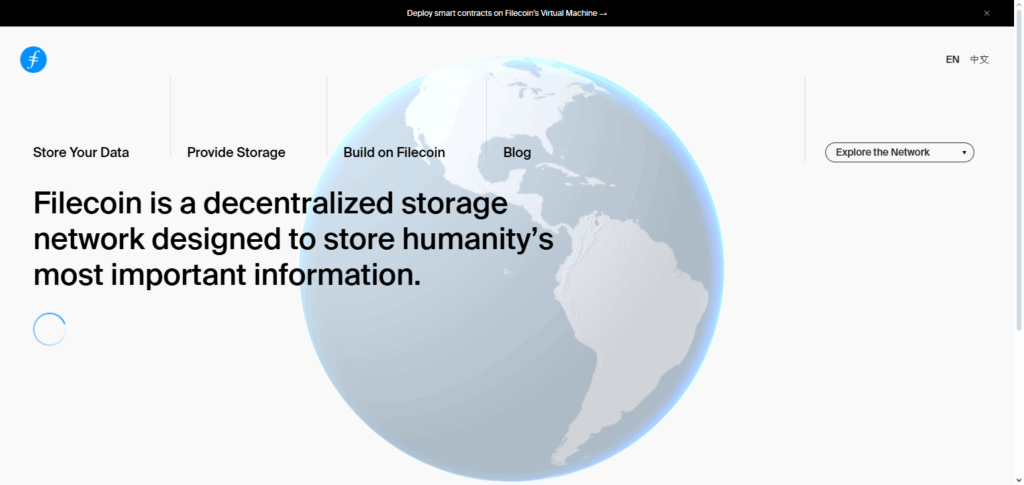
It also protects data with cryptographic proofs to ensure its integrity. Filecoin storage’s unique system of competitive bidding further drives the costs down as much as possible. The combination of cost and security give Filecoin a competitive advantage as a robust and scalable solution for Web3 data storage.
Filecoin Features
- Blockchain-Powered Incentives – Ensures a self-sustaining and decentralized ecosystem through the FIL token which rewards storage providers.
- Storage Capacity – Petabytes worth of data storage, with a flexible price, based on market supply and demand.
- Content Addressing – Ensures and verifies files to be stored tamper-free using cryptographic hashes.
2.Arweave
Arweave is recognized as one of the Best Decentralized Storage Alternatives to IPFS because of its “permaweb” concept which allows storing data permanently for a one-time fee. Unlike subscription-based models, Arweave’s economic design ensures permanency of access for the content without further payments.
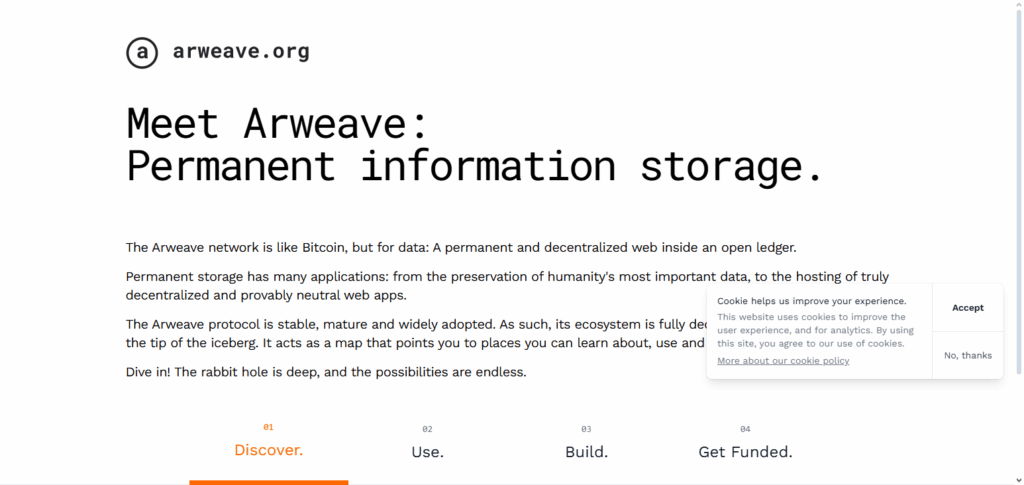
Its blockweave technology not only secures data immutably, but actively encourages the creation of a sustainable network for the preservation of information for future generations, making it best for archiving, research, and publishing in the “freedom of the press” context of Web3.
Arweave Features
- Permanent Storage – Ensures data immutability through “pay once, store forever” via its Permaweb.
- Proof-of-Access – Decentralized Recall and Retention of Data Rewards miners for efficient storage of older data.
- Friendly to Developers – Host on DApps and websites with provided APIs and gateways for easy integration.
3.Sia
Sia is one of the Best Decentralized Storage Alternatives to IPFS for its unique splitting and encrypting files approach before distributing them to different independent hosts around the globe. This architecture ensures enhanced privacy and no single point of failure since only the file owner holds the encryption keys.
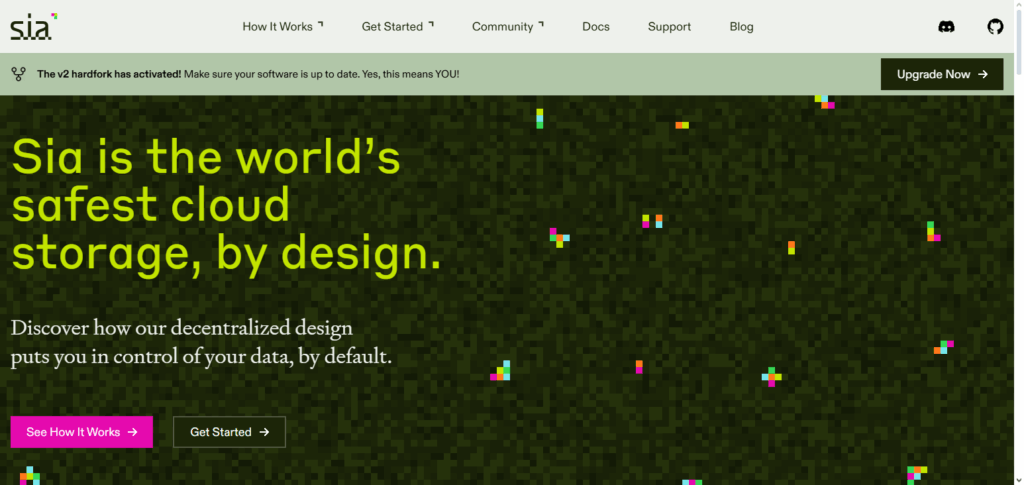
Sia is one of the Best Decentralized Storage Alternatives to IPFS because its competitive host marketplace drives down storage costs while keeping reliability, making Sia a cost-effective and secure choice for users looking for fully decentralized, censorship-resistant cloud storage in the web3 world.
Sia Features
- Encryption – Automatic shredding and encrypting of files guarantees privacy.
- Storage Costs – Low due to the lack of middle-men to a peer-to-peer storage host.
- Payments – Decentralized payment to providers using Siacoin (SC)
4.MaidSafe
MaidSafe stands out among the Best Decentralized Storage Alternatives to IPFS because of its vision of the SAFE Network — an internet without servers, fully self-contained and autonomous, where data, communications, and applications are completely decentralized. Its self-encryption method uniquely disassembles data, encrypting and scattering pieces across the network without any user action.

This level of automation guarantees unparalleled privacy, protection, and resilience. In the Web3 age, MaidSafe seeks to liberate users by eliminating central control and granting full dominion and command over their digital data.
MaidSafe Features
- SAFE Network Architecture – Fully autonomous network for data storage, encryption, and redundancy.
- No Central Servers – No single point of failure for the system means serverless reduces downtime and data loss risk.
- User Data Ownership – Provides full user control and corporate access and tracking is non-existent.
5.Swarm
Swarm serves as a decentralized storage solution for the Ethereum ecosystem IPFS because it integrates seamlessly with Ethereum as the decentralized storage and content distribution for Web3 Applications. Its incentive model guarantees the availability of data by rewarding nodes for the content’s storage and serving and punishing for non-performance.
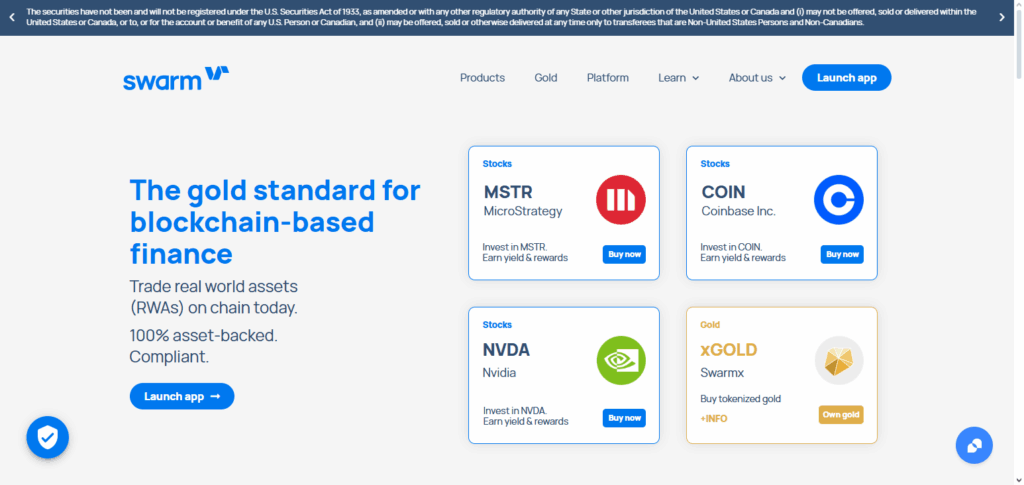
The faults found in serving nodes are minimized because of the chunk-based storage and redundancy model in swarm, these features make it an ideal candidate for serving dApps, NFT projects, and blockchain based publishing which require robust, scalable, censorship resistant and resilient architecture.
Swarm Features
- Ethereum Integration – Associates directly with Ethereum DApps and smart contracts.
- Redundant Data Storage – Data security is reinforced by the replication of files across numerous nodes.
- Built-In Incentives – Host and bandwidth provisions are compensated with the BZZ token.
6.Pinata
Pinata stands out as one of the leading alternatives to IPFS for decentralized storage due to its ease of use. It offers effective file management tools for IPFS, providing “pinning” services that ensure content is persistently accessible. This relieves users of the burdens associated with operating personal IPFS nodes.
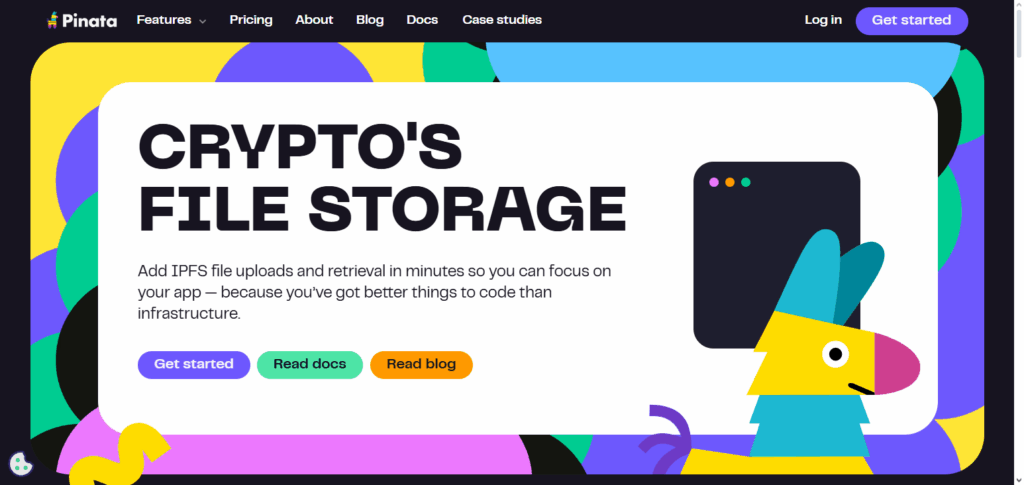
NFT creators, Web3 developers, and other media project stakeholders who require fast, secure, and scalable media delivery benefit the most from Pinata’s tailored services, which makes it the number one provider for low-maintenance decentralized storage solutions.
Pinata Features
- IPFS Content Management – Provides a centralized management dashboard for easier file hosting and management.
- Scalable Storage Plans – Tailored pricing is available for individuals and businesses alike.
- Fast Retrieval – Optimized pinning services ensure rapid access to data stored on IPFS nodes.
7.OrbitDB
Best Decentralized Storage Alternatives to IPFS would be OrbitDB because it serves as a Peer to Peer Distribute Database which works directly on top of IPFS which allows complete serverless data management.
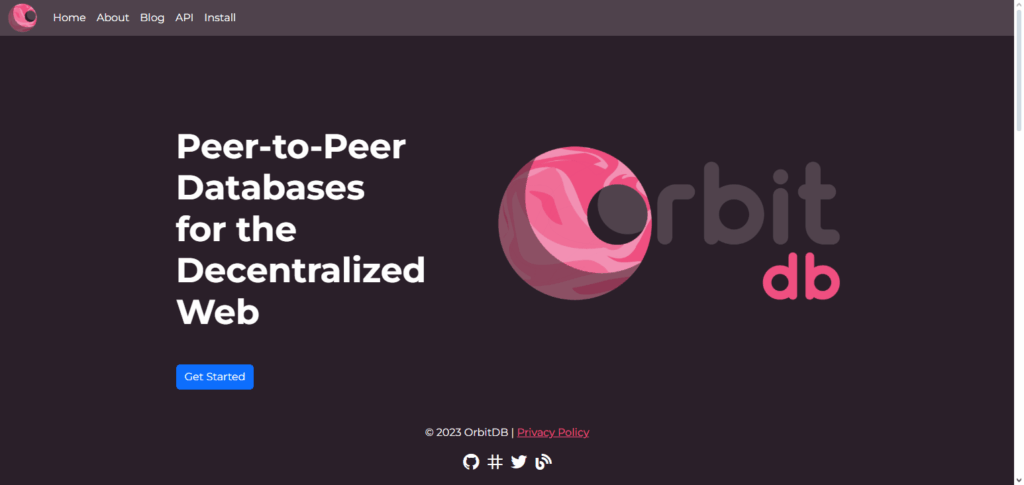
Its uniqueness stems from using conflict-free replicated data types (CRDTs) as a data consistency layer across all nodes, eliminating the need for a central server. Offline, real-time applications for which users can control the data completely can be built on OrbitDB which can be used in DApps, in collaborative applications, and in blockchain systems which require high trust and secrecy.
OrbitDB Features
- Peer-to-Peer Database – A distributed database operating directly on IPFS, avoiding the need for central servers.
- Offline-First Syncing – Enable local modifications for later auto-syncing when connections are available.
- Multiple Data Models – Includes key-value and document stores, as well as event logs.
8.Filebase
Filebase is One of the Best Decentralized Storage Alternatives to IPFS for its Place as a Bridge between Cloud Tools and Decentralized Storage. It has an S3 compatible interface which makes it easy for developers to use IPFS and Sia decentrialzed storages without altering their workflows.
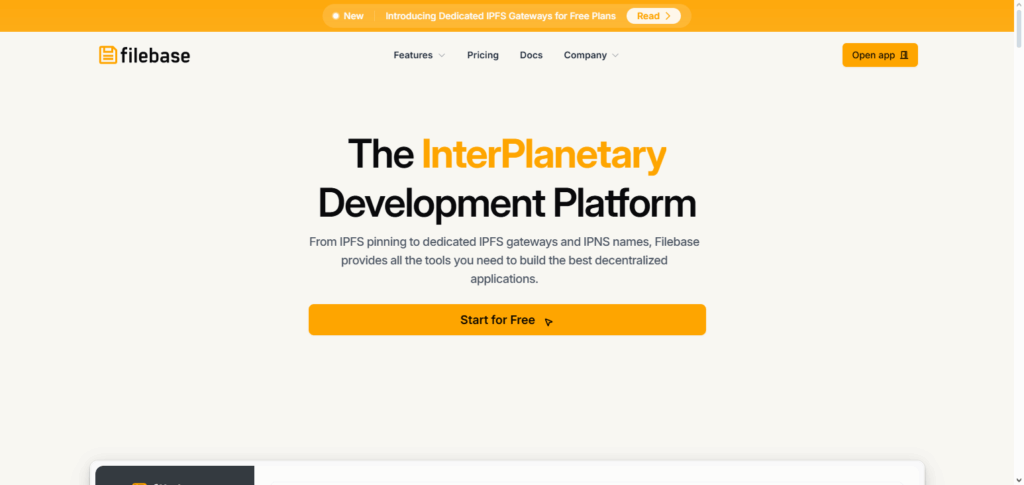
Also, it takes care of the data replication and pinning and redundancy, so it is reliable and fast. Because of the easy integration, it is a great option for developers and businesses shifting from centralized clouds to Web3 sistemas.
Filebase Features
- Multi-Network Gateway – Combines IPFS, Sia, and Storj under a single storage interface.
- S3-Compatible API – Integrates with AWS-based systems and workflows effortlessly.
- Pay-As-You-Go Pricing – Stores the only data needed without upfront commitments and are charged for storage used.
9.Polybase
Polybase is one of the Best Decentralized Storage Alternatives to IPFS because it focuses on Web3 applications. Polybase’s most noteworthy end feature is end-to-end encryption with fine-grained access control. It allows users to share parts of the encrypted dataset without revealing the entire data tree.
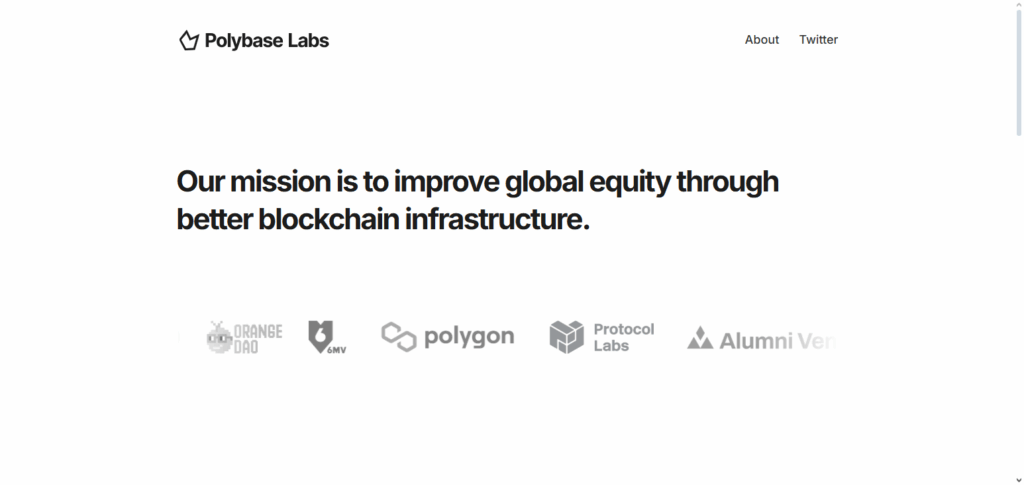
Polybase’s effortless integration with blockchain systems allows real-time dynamic data interactions. It is built for composability and scalability. Thus, it is perfect for privacy-sensitive social dApps and decentralized systems that need high-performance data handling.
Polybase Features
- Decentralized Database – Specializes in secure, privacy-preserving data storage for Web3 applications.
- Granular Access Control – Offers selective read/write permissions on stored data.
- Blockchain Integration – Integrates with smart contracts for easy automated data processes.
Conclusion
To summarize, “Best Decentralized Storage Alternatives To IPFS You Must Know” presents different options, all trying to solve different problems in the Web3 world. Filecoin’s incentive-based storage market, Arweave’s data permanence, and Sia’s privacy-driven network all showcase innovation in the field of information storage, retrieval, and security.
For NFTs and dApps, research archives, and privacy-respecting databases, these alternatives serve fully-scalable, resistant to censorship, low-cost solutions and enable users to truly own their data in a decentralized world.
FAQ
What are decentralized storage alternatives to IPFS?
These are platforms that store and distribute data without relying on centralized servers, using peer-to-peer networks and blockchain technology.
Why use alternatives to IPFS?
Some alternatives offer features like permanent storage, integrated databases, privacy-focused encryption, or easier integration with traditional tools.
Are decentralized storage options secure?
Yes, most use encryption, redundancy, and distributed networks to protect against data loss, tampering, and unauthorized access.








